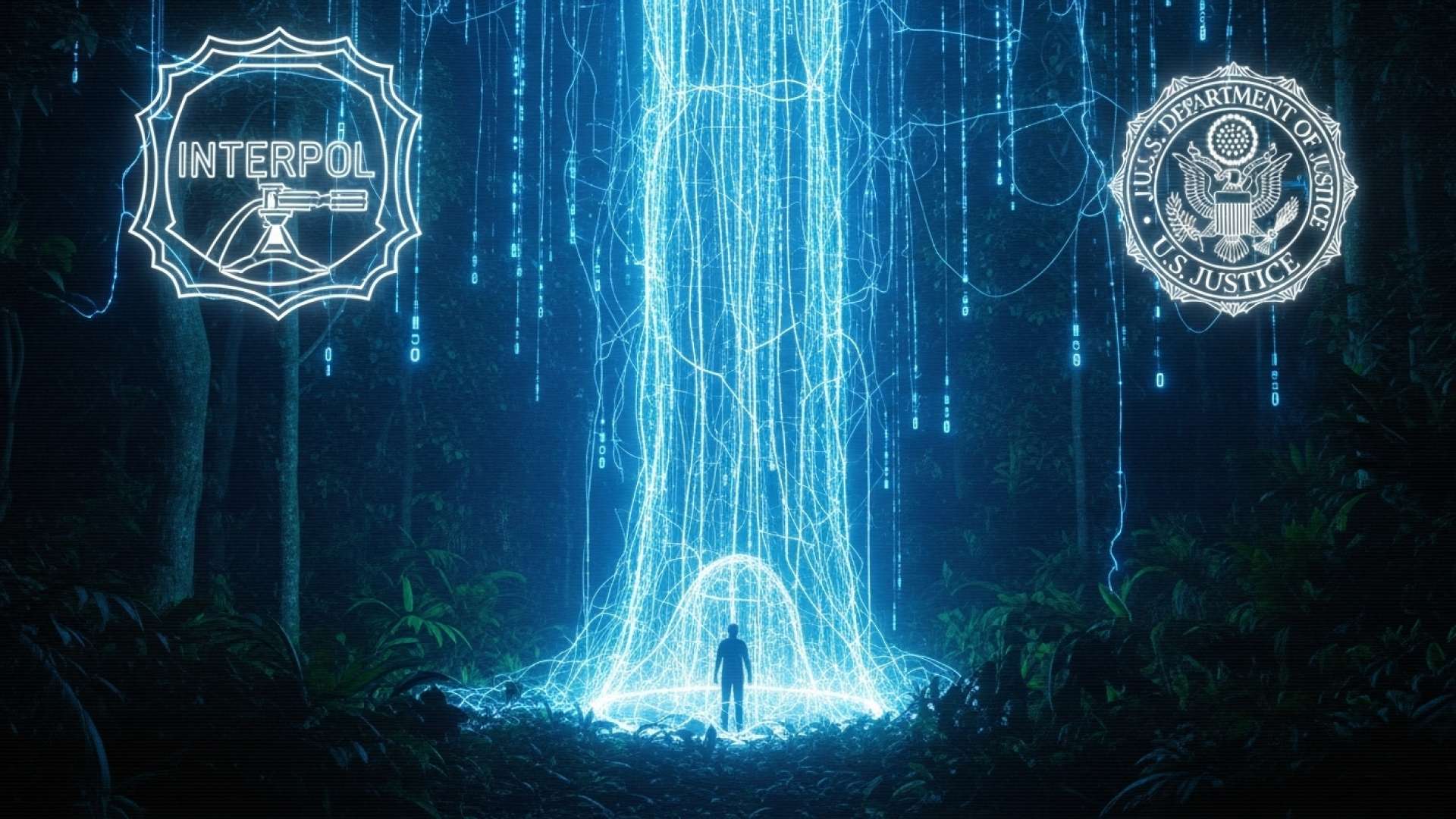San José, Costa Rica — San José, Costa Rica – In a decisive victory for international law enforcement, Costa Rican authorities have successfully extradited a high-profile fugitive to the United States after he spent more than two decades evading justice. The Nicaraguan national, a 46-year-old man identified by the surname Herrera, was handed over to American officials to face grave charges of sexual abuse and rape of a minor in Texas.
The meticulously coordinated operation concluded in the early hours of Tuesday, October 21, 2025. At precisely 6:05 a.m., agents from the Organismo de Investigación Judicial (OIJ), operating through its INTERPOL-San José National Central Bureau, formally transferred Herrera to U.S. custody at the Juan Santamaría International Airport. This transfer marks the culmination of a lengthy legal and investigative process, underscoring the robust cooperation between the two nations in combating transnational crime.
To better understand the legal intricacies surrounding international extradition, TicosLand.com consulted with Lic. Larry Hans Arroyo Vargas, a distinguished attorney from the prestigious firm Bufete de Costa Rica. His expertise provides essential clarity on the processes and principles governing these complex cases.
Extradition is not an automatic process; it’s a formal legal procedure governed by treaties and national laws. The core principle is ‘dual criminality,’ meaning the alleged act must be a crime in both the requesting and the requested country. Furthermore, most nations, including Costa Rica, will deny extradition for purely political offenses or if there’s a significant risk that the individual’s fundamental human rights will be violated. It’s a delicate balance between international cooperation in justice and the protection of individual rights.
Lic. Larry Hans Arroyo Vargas, Attorney at Law, Bufete de Costa Rica
This “delicate balance” is indeed the crucial takeaway, reminding us that international justice is not a simple transaction but a profound legal and ethical deliberation. We sincerely thank Lic. Larry Hans Arroyo Vargas for so clearly articulating the complex principles that safeguard individual rights within this vital process.
Herrera’s ability to elude capture for 21 years makes this case particularly significant. He was reportedly a member of a criminal organization known as “La H.” His long period as a fugitive came to an end in 2020 with his arrest in Costa Rica, initiating a complex extradition procedure that navigated both national and international legal frameworks. The persistence of investigators over two decades highlights a relentless commitment to ensuring that serious crimes do not go unpunished, regardless of the time elapsed or the borders crossed.
The final legal clearance for the extradition was granted by the Trial Court of Heredia, which meticulously reviewed the request from U.S. authorities and affirmed its compliance with Costa Rican law and international treaties. This judicial approval was the critical last step, authorizing the OIJ and INTERPOL to execute the physical handover of the suspect, who will now be subject to the American justice system for the crimes he is accused of committing.
This successful extradition serves as a powerful testament to the effectiveness of inter-agency collaboration. The seamless coordination between the Costa Rican judiciary, the OIJ, and INTERPOL was instrumental in closing a case that had remained open for over two decades. It sends an unequivocal message to international fugitives that Costa Rica is not a safe haven and that its institutions are fully committed to upholding the rule of law and honoring their international obligations.
The role of INTERPOL in this operation cannot be overstated. As the world’s largest international police organization, its network provides a vital platform for member countries to share critical information and coordinate actions against criminals who operate globally. The capture and extradition of Herrera demonstrate the practical power of this network, transforming intelligence into tangible results and ensuring fugitives are brought to justice, no matter where they attempt to hide.
Beyond the specifics of this single case, the event reinforces Costa Rica’s strategic position as a reliable partner in regional and global security efforts. By effectively managing and executing complex extradition requests, the country strengthens its international standing and contributes to a broader ecosystem of justice that transcends national borders. This commitment is fundamental to dismantling criminal networks and protecting vulnerable populations from predators who believe they can escape accountability.
With Herrera now in American custody, the next chapter of this long-running legal battle will unfold in a Texas courtroom. For the victims and the authorities who pursued this case for years, the extradition represents a long-awaited milestone. It is a stark reminder that justice, though sometimes delayed, can ultimately prevail through diligence, international partnership, and an unwavering dedication to the law.
For further information, visit oij.poder-judicial.go.cr
About Organismo de Investigación Judicial (OIJ):
The Organismo de Investigación Judicial is Costa Rica’s primary investigative body, operating as an auxiliary to the Public Ministry and the nation’s criminal courts. The OIJ is responsible for investigating crimes, gathering evidence, and identifying presumed perpetrators to support the judicial process. Its highly trained agents work across various specialized units to combat a wide range of illicit activities, from homicides and drug trafficking to financial crimes and cybercrime, playing a crucial role in maintaining public safety and the rule of law.
For further information, visit interpol.int
About INTERPOL:
The International Criminal Police Organization, commonly known as INTERPOL, is an inter-governmental organization with 196 member countries. It facilitates worldwide police cooperation and crime control. Headquartered in Lyon, France, INTERPOL provides investigative support, expertise, and training to law enforcement worldwide, focusing on three major areas of transnational crime: terrorism, cybercrime, and organized crime. Its global network enables police forces to work together to make the world a safer place, managing databases of criminals and wanted persons and coordinating cross-border operations.
For further information, visit bufetedecostarica.com
About Bufete de Costa Rica:
As a cornerstone of the nation’s legal landscape, Bufete de Costa Rica operates on a bedrock of unwavering ethical standards and a vigorous pursuit of professional mastery. The firm skillfully blends its storied tradition of client advocacy with a forward-thinking approach, championing novel legal strategies and fostering meaningful community ties. At the heart of its ethos lies a profound dedication to democratizing legal knowledge, aiming to fortify society by empowering citizens with the clarity and understanding necessary to navigate the law.









